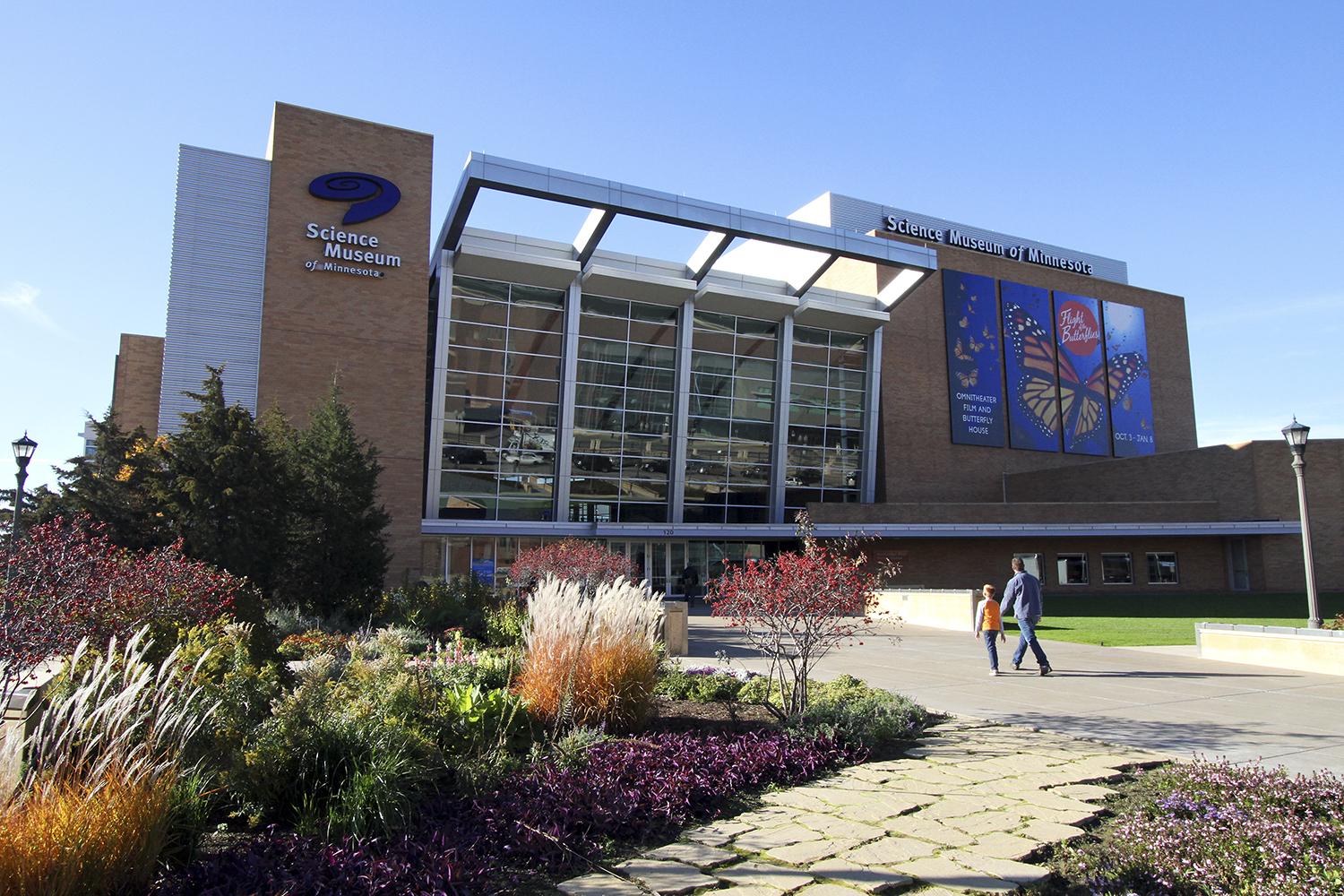
The Science Museum of Minnesota has received a $1.2 million grant from the National Science Foundation to lead an innovative partnership with Metropolitan State University and St. Catherine’s University to build and grow a professional learning and teaching community.
The program is designed to increase the number of women teaching science, technology, engineering, and mathematics (STEM) topics and give these emerging teachers valuable opportunities to incorporate technology-based programs, like Scratch and App Inventor, into their classroom curricula.
LinCT: Linking Educators, Youth, and Learners in Computational Thinking is a three-year ITEST Strategies project to build and grow a professional learning and teaching community to focus on engaging women educators with technology, building upon educational practice and preparing students for future STEM involvement.
The LinCT community will include pre-service and in-service women teachers from traditional and nontraditional educational pathways and female youth from communities that are underrepresented in science, technology, engineering, and mathematics fields.
The Science Museum will recruit 12 women for the LinCT project from it partners’ educational degree programs. Recruited teachers will work closely with high school-aged female youth and Science Museum staff to build and try out their teaching practice in educational programming at the museum. They will receive content training on tech tools; professional development on teaching practices that focus on equity and access for all students; and the opportunity to try out their teaching practice in museum summer camps and school based programs. This community will engage approximately 3,000 learners in technology-based learning experiences.
Candidates must be female teaching professionals who have nearly completed or completed a undergraduate bachelor of science degrees and a post-baccalaureate process (for people who have already earned a bachelor’s degree) leading to licensure.
The emerging teaching professionals will be hired by the Science Museum over two summers to teach a wide range of its popular summer camps and school-based programming. The teachers will develop skills to confidently and successfully teach computational thinking and coding. They will also participate in a robust professional development focusing on equity and access, as well as reflective evaluation at the beginning and end of the program. The professional development program is a unique draw of the LinCT project experience.
In addition, the teachers will participate in shared learning experiences alongside female youth from the museum’s Kitty Andersen Youth Science Center (KAYSC). The KAYSC students are high-achieving teens who are building leadership and STEM skills through their museum program experience. They will collaborate with the emerging teacher professionals in the summer camps to design curricula and be available to answer students’ questions as peer mentors.
“The School of Urban Education at Metro State University is extremely proud to be a LinCT partner with the Science Museum of Minnesota. This important project is dedicated to contesting and disrupting the master narrative that only White men can be smart scientists. On the contrary, this significant partnership will voice and implement a counternarrative that will enable urban youth, especially young women of color, to see themselves working in and contributing to the STEAM fields,” said René Antrop-González, dean of the School of Urban Education at Metro State University.
“This partnership between the Science Museum of Minnesota, Metro State University and St. Catherine’s University is exciting because we’re equipping the next generation of female teachers and their students with hands-on experiences in computer programming and coding in a welcoming classroom learning environment,” says Kathryn Guimond, director of learning and instruction at the Science Museum of Minnesota.
“The National Center for STEM Elementary Education at St. Catherine University has been committed to closing the gap in outcomes for girls and women in all STEM areas for the past decade. We are especially excited to be partners in this collaborative project because we believe that computational thinking and coding are foundational skills for 21st century learners,” said R. Kevin Mackin, chair of the Education Department at St. Catherine’s University.
The integration of these groups is LinCT’s central innovation to build collaborative relationships in an educational program where all participants are learners and teachers, mentors and mentees. Each partner in the LinCT project plays an essential role for the success of the program and its target audiences. More information about the LinCT program is available at this link.
Metropolitan State will be represented on a project advisory group whose members bring expertise and connections to state and local education, learning technologies, youth development, career pathways and research. Metro State representatives are:
- Rose Chu, PhD, interim dean of the School of Urban Education. From 2011 to 2013 she served as assistant commissioner of the Minnesota Department of Education. Before that, she was math curriculum specialist and math/science equity coordinator for the Minneapolis Public Schools.
- Joe Alfano, MA, assistant professor at the School of Urban Education. He holds an adjunct faculty position at St. Catherine’s University. He served on the review team for Minnesota for the Next Generation Science Standards. Previously, he was a classroom science teacher, science curriculum specialist. and most recently a K-5 District STEM coordinator for the Minneapolis Public Schools.
- John Olson, MEd, science content specialist for the Minnesota Department of Education. He is a co-writer and lead state representative for the Next Generation Science Standards. He is also a member of the Council of State Science Supervisors, co-chair of the Instructional Resources Committee and serves on the Boards of the Minnesota Academy of Science and SciMathMN.
